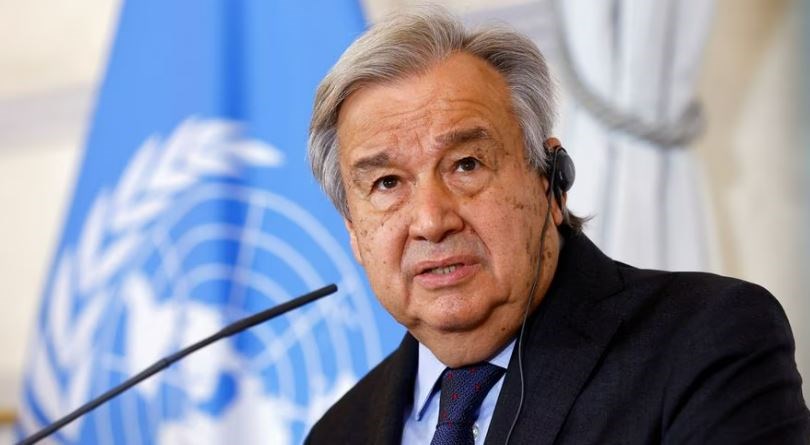Sudan on 'the edge of the abyss': UN chief
As the ongoing clashes in Sudan triggered a mass exodus of foreigners, the UN warns clashes "could engulf the whole region and beyond."
-

United Nations Secretary-General Antonio Guterres speaks during a news conference in Vienna, Austria, May 11, 2022. (Reuters)
After 10 days of brutal fighting between rival forces, the UN chief warned that Sudan is on "the edge of the abyss."
The ongoing clashes triggered a mass exodus of foreigners, however, millions of Sudanese are struggling to flee clashes between forces of rival generals -- General Abdel Fattah Al-Burhan's Sudanese Armed Forces and Mohammed Hamdan Dagalo's Rapid Support Forces (RSF), in Khartoum and across the country.
The Sudanese are attempting to endure severe shortages of water, food, medicine, and fuel, as well as blackouts of the power and internet.
UN agencies reported that at least 427 people have been killed and more than 3,700 wounded in the clashes as Sudanese "flee areas affected by fighting, including to Chad, Egypt, and South Sudan."
"Morgues are full. Corpses litter the streets," said Attiya Abdallah, head of the doctors' union, which, on Monday, reported scores more casualties after sites in south Khartoum were "heavily shelled".
UN Secretary-General Antonio Guterres warned that the clashes in Sudan -- already one of the world's poorest countries, with a history of military coups -- "could engulf the whole region and beyond."
"We must all do everything within our power to pull Sudan back from the edge of the abyss," Guterres said, reiterating his call for a ceasefire.
On its account, the UK has demanded an emergency UN Security Council meeting on Sudan, which is expected to take place on Tuesday, as per a diplomat.
A UN convoy carrying 700 people has reportedly concluded an arduous 850-kilometer road trip to Port Sudan on the Red Sea coast from the capital.
The United Nations head of mission Volker Perthes confirmed that the convoy arrived safely.
"Thirty-five hours in a not-so-comfortable convoy are certainly better than three hours' bombing and sitting under the shells," he said.
Separately, a UN statement said he and other key staff will "remain in Sudan and will continue to work towards a resolution to the current crisis."
Read next: What is happening in Sudan?

 2 Min Read
2 Min Read








